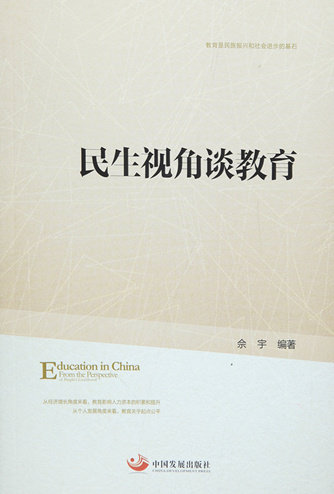Education in China from the Perspective of People’s Livelihood
Nov 15,2018

By She Yu, DRC
2016-3-9
Education is the cornerstone of national rejuvenation and social progress. From the perspective of economic growth, education affects the accumulation and promotion of human capital; from the perspective of personal development, education is about fairness at the starting point. Therefore, adhering to priority development of education, comprehensively implementing the party’s education policy, vigorously promoting educational equality, continuously improving the quality of education, and striving for a satisfactory education for the people are of great significance to the continuous improvement of people’s livelihood and social construction.
This book contains 16 articles of the authors’ writing or interviews on the topic of education which are published by People’s Daily, Economic Daily, China Economic Times, DRC Net and China Economic Net from 2012 to 2015. The articles are generally divided into the following categories: First, long interviews, such as “Improving Education and People’s Livelihood Needs to Consider the Priority” and “How to Achieve Sustainable Development of Preschool Education in Rural Area”; Second, media discussion, such as “How to Solve Problems in the Field of Old-Age Service and Education”, “Early Intervention: Overcoming the First Barrier to Poverty”; Third, features and special reports on newspaper, such as “ Achieve College Graduates’ Stable Employment through Fiscal Subsidy to Social Security” and “How to Balance the Allocation of Compulsory Education Resources”; Fourth, research reports, such as “Education Rights in the Process of Urbanization”, and “Establishing Teacher Mobility System: Concerns, Obstacles and Suggestions”. In terms of the content, this book covers wide range of topic areas such as the interpretation of relevant education policies, the debates on hot topics of education, the review of education development as well as the reflection on reforms in related fields. From the perspective of the article formats, the book includes in-depth analysis in more than ten thousands words, short briefings in a thousand words, individualistic column views as well as salon-style discussion.














